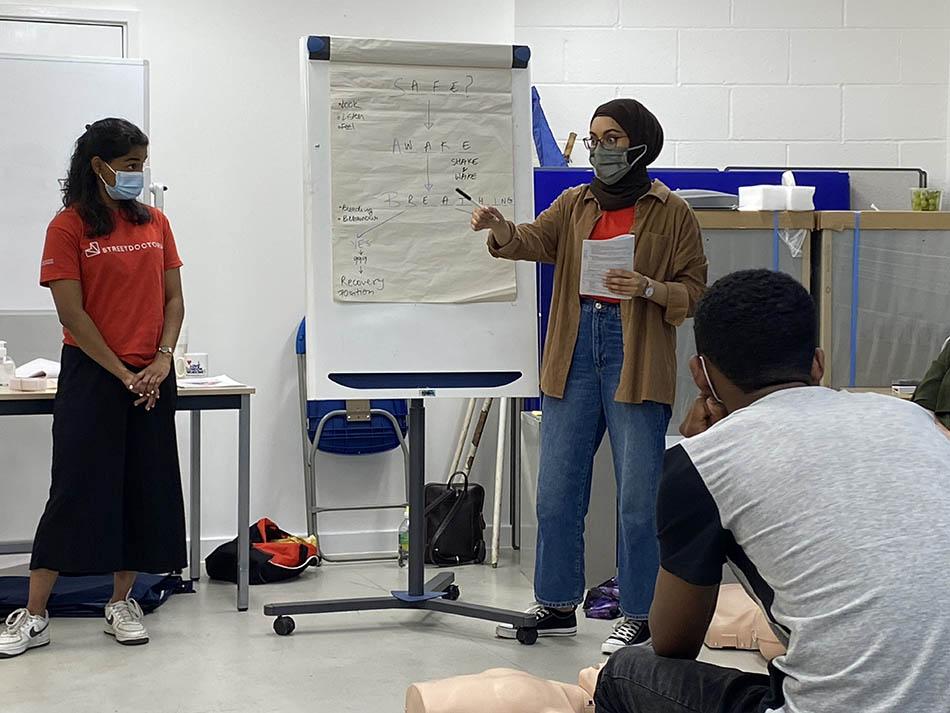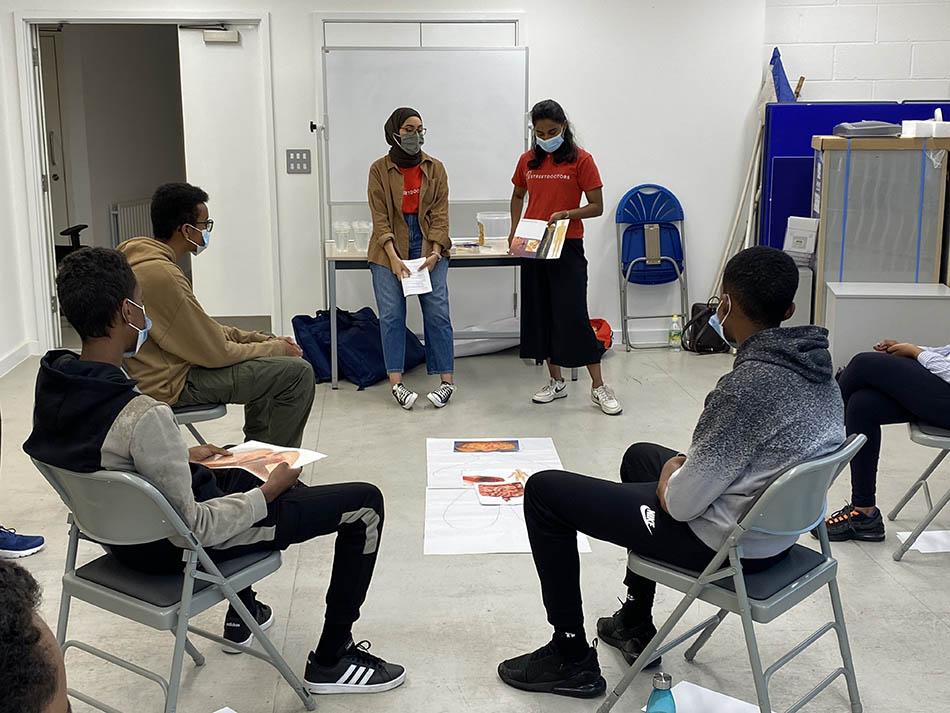With a Small Grant of just £1,892 the Company is helping young people in London learn how to prevent deaths from knife crime with charity Street-Doctors. |
 |
|
There are two impressive things about the work of Street-Doctors. First, the sessions they deliver for small groups of young people are potentially life-saving: teaching simple, memorable steps with the aim of preventing deaths from knife crime. Second, and equally impressive, is that the sessions are run exclusively by volunteers. Healthcare students (nurses, medics, paramedics) – at various stages of their education – give up their precious spare time to impart their knowledge and empower young people to feel confident in responding to a knife-crime incident. I had the chance to visit a Street Doctors’ session on a council estate in east London. Most of the young people were 13-15 years old. The lively and passionate volunteers, Ash and Amani, led the two-hour session with youthful spark, humour and knowledge. The group of young people identified the body’s organs (and which are the most important ones in terms of a first aid response), learnt how to recognise if someone has been stabbed, and what happens as the body loses blood. |
|
”I didn’t think it would affect my family but knife crime has affected everyone I know in some way. I wanted to help do something about it.” ”The vilification of young people in London is something I want to challenge. It’s not right that people hold those perceptions of them.” |
 |
|
They were taught a helpful mnemonic (AS ALERT) that would help them deal with an incident in a safe and appropriate way. Finally they had the chance to practice CPR on the plastic resuscitation dolls. Given that the Metropolitan police have said London is on track for its worst year of teenage killings since 2008 these workshops are crucial to helping save young lives. Street-Doctors has struck upon an imaginative way of empowering young people to become lifesavers. And if these sessions save just one person’s life, then they have done their job. Susan Barry
|
